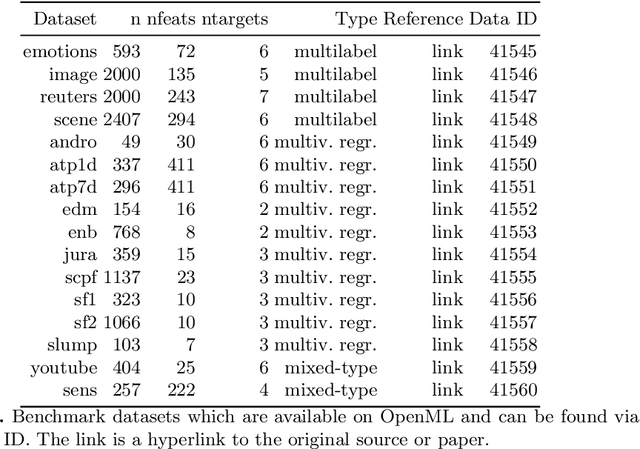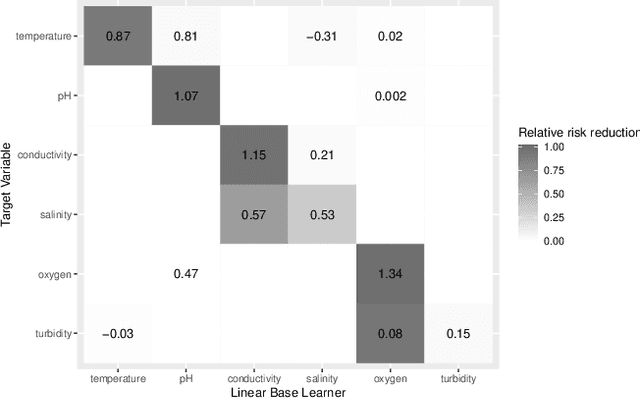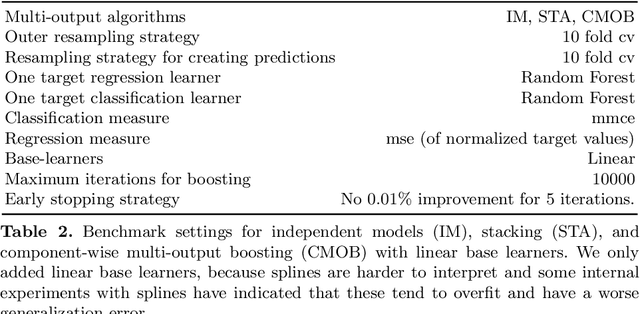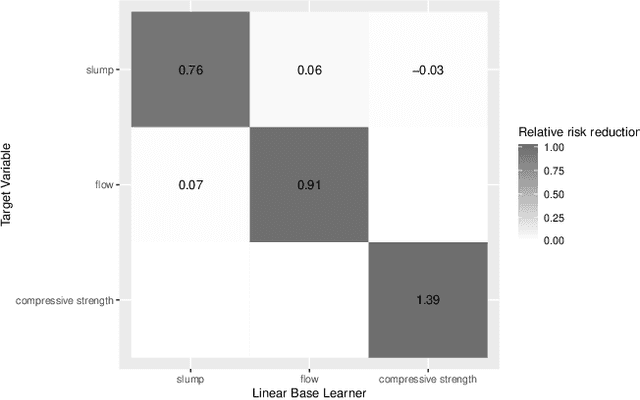Ramona Schoedel
Component-Wise Boosting of Targets for Multi-Output Prediction
Apr 08, 2019



Abstract:Multi-output prediction deals with the prediction of several targets of possibly diverse types. One way to address this problem is the so called problem transformation method. This method is often used in multi-label learning, but can also be used for multi-output prediction due to its generality and simplicity. In this paper, we introduce an algorithm that uses the problem transformation method for multi-output prediction, while simultaneously learning the dependencies between target variables in a sparse and interpretable manner. In a first step, predictions are obtained for each target individually. Target dependencies are then learned via a component-wise boosting approach. We compare our new method with similar approaches in a benchmark using multi-label, multivariate regression and mixed-type datasets.
 Add to Chrome
Add to Chrome Add to Firefox
Add to Firefox Add to Edge
Add to Edge